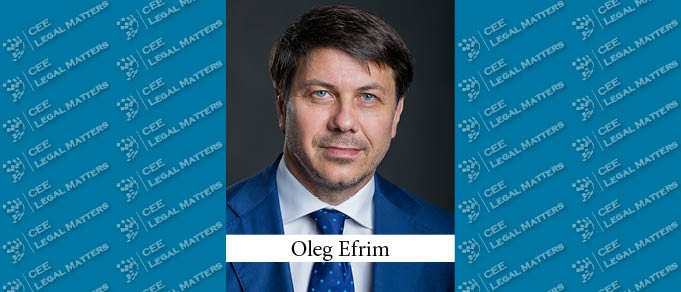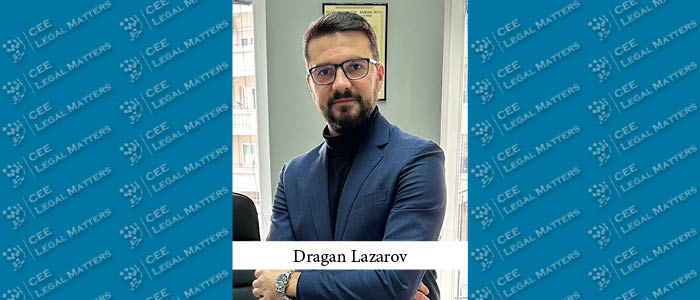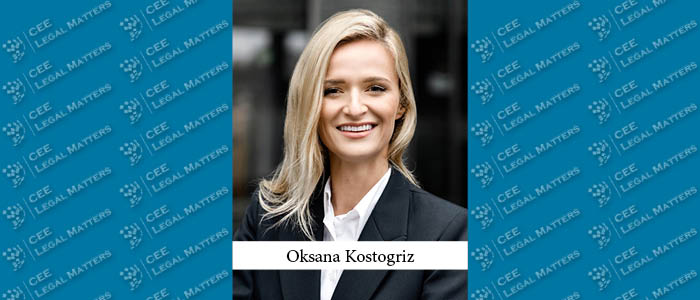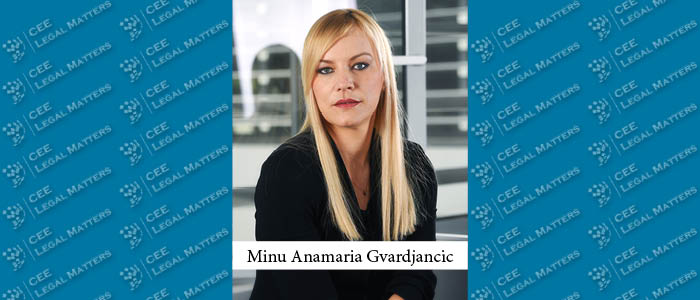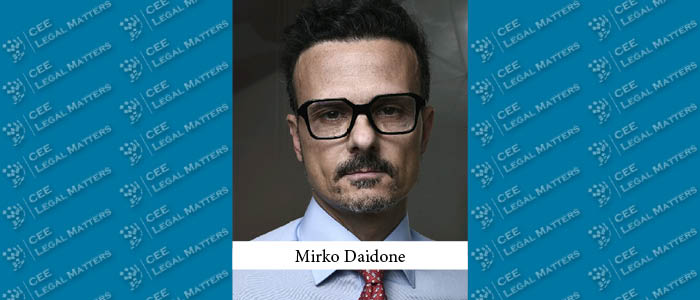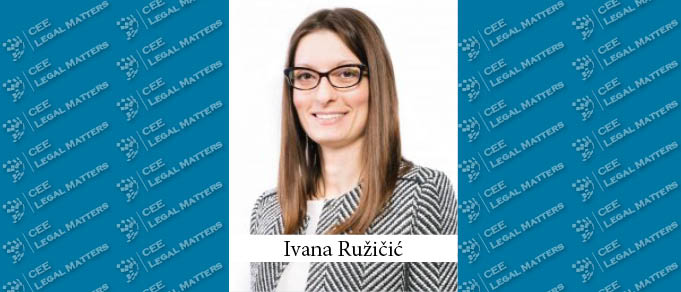The new year started early for Montenegro, or at least it feels that way according to PLK Advokati Founding Partner Stefan Lucic, who points to significant recent policy shifts aligning Montenegro more closely with the EU and NATO and to the ambitious economic reforms spearheaded by the country's newly elected prime minister.
No Rest on Compliance in Hungary: A Buzz Interview with Gergely Szabo of Ban, S. Szabo, Rausch & Partners
An increase in foreign investor activity, energy sector regulation shifts, as well as the incoming challenges brought by the impending ESG Act and NIS2 cybersecurity directive are all keeping lawyers in Hungary quite busy, according to Partner Gergely Szabo of Ban, S. Szabo, Rausch & Partners.
The Weather Outside Is Frightful but Croatia's Still Delightful: A Buzz Interview with Marko Bohacek of BDV Legal
The Fortenova restructuring, legislative updates impacting labor, the gig economy, and immigration, and the fallout of the judicial strike are all high on the agenda in Croatia, according to BDV Legal Partner Marko Bohacek, who – despite the weather outside – maintains a sunny outlook of Croatia's economy.
Moldova Revamps Courts, Public Services, and Companies: A Buzz Interview with Oleg Efrim of Efrim Rosca Asociatii
Moldova's legal and economic landscape is undergoing momentous transformations according to Efrim Rosca Asociatii Partner Oleg Efrim, from updates to the corporate sector and an ongoing digital transformation, to Moldova's path towards EU integration and the challenges and opportunities facing various business sectors amid geopolitical tensions.
It's All About Perspective in Croatia: A Buzz Interview with Branko Bulat of Savoric & Partners
This year has seen a relative decrease in investment intensity in Croatia, particularly in the residential sector, amid relatively robust activity in M&A, real estate, and energy and notable court disruptions in the past few months, according to Savoric & Partners Partner Branko Bulat.
The Czech Republic Checks All the Digital Boxes: A Buzz Interview with Tomas Scerba of DLA Piper
The Czech Republic appears to be in the middle of rapid advancements in digital transformation and cybersecurity, according to DLA Piper Partner Tomas Scerba, who sheds light on the significant legislative changes propelling the country to the fore of digital innovation.
2023 Is a Late Bloomer in Hungary: A Buzz Interview with Agnes Bejo of Jalsovszky
From the deceptive quiet of early 2023 to a summer bustling with legal reforms and taxing challenges, Jalsovszky Partner Agnes Bejo sheds light on pivotal developments in Hungary ranging from the EU-mandated whistleblowing system to changes in the trust system, environmental responsibilities, and the shifting investment climate in the country.
Estonia Is Looking Less Like Itself: A Buzz Interview with Ergo Blumfeldt of Triniti
From political gridlock to economic shifts, Estonia appears to be experiencing a number of challenges according to Triniti Managing Partner Ergo Blumfeldt, who reports unprecedented parliamentary obstructionism, a budgetary deficit prompting new tax laws, and a legal sector experiencing stagnant growth amid broader economic uncertainties.
Ukraine Soldiers On: A Buzz Interview with Nazar Chernyavsky of Sayenko Kharenko
Against the backdrop of relentless conflict and uncertainty, Sayenko Kharenko Partner Nazar Chernyavsky offers a rare glimpse into the current state of his war-torn country and its resilient legal sector, shedding light on the challenges and adaptations of the Ukrainian people, the country's legal industry, and the significant strides made in mental health support and economic resilience.
North Macedonia Stagnant on Rule of Law: A Buzz Interview with Dragan Lazarov of Law Office Lazarov
Recent months in North Macedonia have brought notable proposals and draft laws for legislative changes and have seen thriving energy and financial sectors – but also a concerning lack of progress on the rule of law, impacting businesses and investment – according to Law Office Lazarov Managing Partner Dragan Lazarov.
Floods and Taxes in Slovenia: A Buzz Interview with Andrej Fatur of Fatur & Menard
With the aftermath of the devastating floods that hit Slovenia this year still being felt across multiple sectors, the country is also facing legal challenges – from new taxation policies to upheavals in the healthcare system – according to Fatur Menard Partner Andrej Fatur.
Serbia's Bracing for a Slowdown: A Buzz Interview with Nenad Popovic of JPM Partners
Between upcoming elections and the situation in Kosovo, Serbia has plenty of reasons to expect a slowdown in the upcoming period, even if current activity levels remain, at times, surprisingly high according to JPM Partners Senior Partner Nenad Popovic.
Getting Creative in Lithuania: A Buzz interview with Oksana Kostogriz of CEE Attorneys
Lithuania becoming a buyer's market as well as new court decisions open the door for traditionally less used M&A deal structures according to CEE Attorneys Partner Oksana Kostogriz.
Capital Markets Doing Well in Romania, Could Do Better: A Buzz Interview with Narcisa Oprea of Schoenherr
Despite limited summer market activity, optimism prevails in Romania, with Schoenherr Partner Narcisa Oprea citing a successful EUR 1.9 billion IPO and increased private sector interest amid quite a few likely regulatory improvements still to come.
Slovenia Rolls Up Its Sleeves: A Buzz Interview with Minu Gvardjancic of Ketler & Partners, Member of Karanovic
In the wake of catastrophic floods, Slovenia has been grappling with several legal and economic challenges as well – from implementing healthcare reform to combating high inflation – according to Minu Anamaria Gvardjancic, a Partner of Ketler & Partners, member of Karanovic.
Albania Bets on Tourism, Renewables, and IT: A Buzz Interview with Mirko Daidone of CMS
Albania is undergoing transformation, with a burgeoning focus on tourism and renewable energy, according to CMS Managing Partner Mirko Daidone. While the legal frameworks are aligning with EU standards and the IT sector is thriving, affordability is decreasing and the country faces talent drain challenges.
Three Wins and a Labor Strike in Croatia: A Buzz Interview with Tena Tomek of Marohnic, Tomek & Gjoic
Croatia's economic outlook has improved with the eurozone entry, energy market reforms, and new and exciting equity programs and legislative changes, while judiciary labor strikes have challenged the country's courts, according to Marohnic, Tomek & Gjoic Partner Tena Tomek.
Serbia Holds Its Breath for Elections and Construction Boom: A Buzz Interview with Ivana Ruzicic of PR Legal
With yet another election cycle impacting legislative activity in Serbia, few – but noteworthy – updates warrant attention, according to PR Legal Managing Partner Ivana Ruzicic. Notably, land conversion fees have been eliminated, potentially unlocking vast construction opportunities, while the excise tax framework is being modernized, with a centralized electronic system set to streamline processes.




